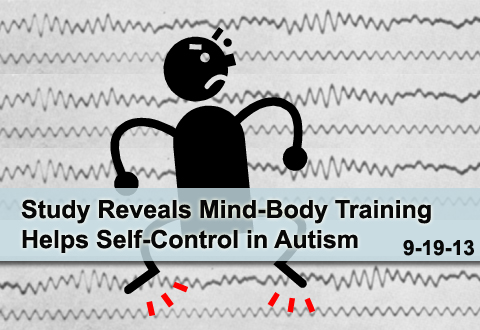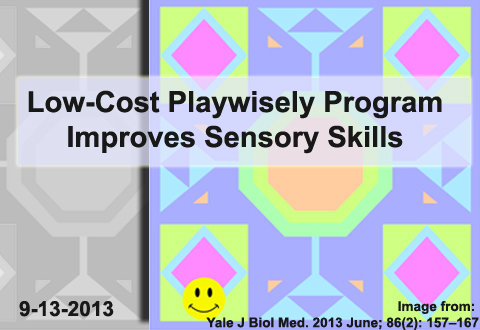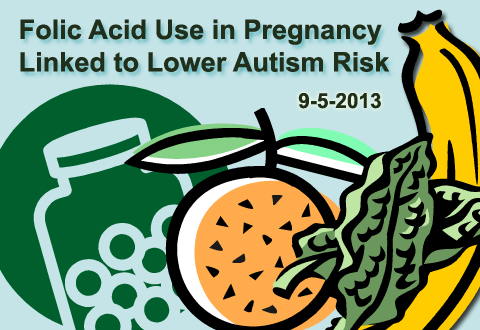Archives
September, 2013
Select a different month in the archive
Age and IQ Are Predictors of Epilepsy Risk in ASD
By Shana R. Spindler, Ph.D. on September 27, 2013

Background: Many children with Autism Spectrum Disorder (ASD) also have random, recurrent seizures, called epilepsy. According to previous research, children with ASD are at higher risk for epilepsy than the general population, with studies reporting epileptic seizures in four to 48 percent of people with ASD. Few studies have been large enough, however, to determine if specific traits, such as IQ, age, or gender, associate with an increased epilepsy risk.
What’s new: The online journal PLOS ONE published a study that looked at epilepsy rates in four samples of children with ASD, totaling 5,815 participants. In the general population sample, the researchers found that 12 percent of children with ASD also had epilepsy. But that percentage increased to 26 percent by adolescence. When the researchers examined cognitive ability, they found that individuals with a lower intelligence quotient (IQ) were more likely to have epilepsy. They also examined gender, language ability, and developmental regression, but upon controlling for IQ, these traits were not significant predictors of epilepsy. Therefore, the researchers suggest that age and low IQ are among the strongest epilepsy risk factors.
Why it’s important: This is one of the largest studies to look at factors involved in the development of epilepsy with ASD. Knowing epilepsy risk factors can help clinicians make an informed prognosis and provide guidelines for patients who are at high risk for epilepsy. Individuals who have or are at risk for epilepsy may require specialized medical care.
Help me understand :
| Source(s) : |
| Tweet |
Mind-Body Training Helps Autistic Children’s Self-Control
By Chelsea E. Toledo, M.A. on September 19, 2013

Background: Children with autism spectrum disorder (ASD) are known to experience difficulty with self-control – which manifests as temper tantrums and repetitive, rigid, or impulsive behaviors. If self-control difficulties are not addressed, additional learning problems can follow. Most existing interventions to improve self-control use behavior-based therapy.
What’s New: On July 10, 2013, a study published in the online journal PLOS ONE demonstrated that a Chinese mind-body exercise could improve self-control in children with ASD. Forty-six children between the ages of 6 and 17 with the disorder were divided into two groups, matching them based on their age an IQ. For four weeks, the control group practiced Progressive Muscle Relaxation (PMR), a conventional behavioral intervention technique, while the experimental group underwent training in Nei Yang Gong, a holistic Chinese approach including psychoeducation, diet modifications, and mind-body exercises. The researchers found that children participating in Nei Yang Gong scored better than the control group on neurophysical tests, parental questionnaires, and electroencephalography (EEG) brain activity recordings measuring self-control.
Why it’s important: This study reveals the potential benefit of Chinese mind-body training for children with ASD.
Help me understand :
| Source(s) : |
| Tweet |
Playwisely Program Improves Sensory-Based Skills
By Shana R. Spindler, Ph.D. on September 13, 2013

Background: Autism insurance coverage varies greatly. Given the high cost of some autism therapies, middle and low-income families have limited treatment options. Researchers are working to find cost-effective autism therapy.
What’s new: The Playwisely Program is a low-cost system designed to promote connections between sensory areas of the brain. The program uses interactive flashcards that mix sight, sound, and touch. Researchers from the Autism Treatment Center in Dallas, Texas, divided 18 children with mild to severe autism into two treatment groups: Playwisely or usual care. The researchers found that Playwisely improves multiple skills in ASD after three months. They reported significant improvements in recognition, sensory mixing, speech sound awareness, letter recognition, and early memory skills. The small sample size prevented some study comparisons, such as Playwisely benefits for specific age groups.
Why it’s important: The authors of the study estimate that Playwisely is one-tenth the cost of available alternatives. This makes Playwisely an attractive option for all families, regardless of income. A major strength to this study is that clinicians made post-treatment assessments in a blind manner. This means the clinician did not know if the child was part of the Playwisely or usual care group.
Help me understand :
| Source(s) : |
| Tweet |
Folic Acid Use in Pregnancy Linked to Lower Autism Risk
By Chelsea E. Toledo, M.A. on September 5, 2013

Background: Folic acid, a water-soluble B vitamin, is an ingredient in most prenatal supplements, and has been shown to decrease the risk for brain and spinal defects in developing embryos. Studies have also found correlations between folic acid use in very early pregnancy and lowered risk of severe language delay—suggesting the supplement may play a part in preventing neurodevelopmental disorders.
What’s New: On February 13, 2013, the Journal of the American Medical Association (JAMA) published an observational study evaluating the relationship between mothers’ folic acid exposure and the likelihood of their children to develop autism spectrum disorder (ASD). The researchers examined records of 85,176 children born between 2002 and 2008, who were participating in the Norwegian Mother and Child Study. They found that children whose mothers were unexposed to folic acid were about twice as likely (at a risk of 0.21%) to have a diagnosis of Autistic Disorder, the most severe form of autism, by 2012 than their counterparts whose mothers had taken the supplement.
Why it’s important: Although the findings do not establish that folic acid use prevents autism, this study supports the widespread recommendation for would-be mothers to begin taking the supplement before conception.
Help me understand :
| Source(s) : |
| Tweet |

